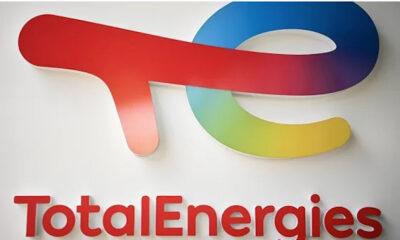Oil prices declined on Monday, shedding 1% of their value as Israel-Hamas peace negotiations in Cairo alleviated fears of a broader conflict in the Middle East.
The easing tensions coupled with U.S. inflation data contributed to the subdued market sentiment and erased gains made earlier.
Brent crude oil, against which Nigerian oil is priced, dropped by as much as 1.09% to 8.52 a barrel while West Texas Intermediate (WTI) oil fell by 0.99% to $83.02 a barrel.
The initiation of talks to broker a ceasefire between Israel and Hamas played a pivotal role in moderating geopolitical concerns, according to analysts.
A delegation from Hamas was set to engage in peace discussions in Cairo on Monday, as confirmed by a Hamas official to Reuters.
Also, statements from the White House indicated that Israel had agreed to address U.S. concerns regarding the potential humanitarian impacts of the proposed invasion.
Market observers also underscored the significance of the upcoming U.S. Federal Reserve’s policy review on May 1.
Anticipation of a more hawkish stance from the Federal Open Market Committee added to investor nervousness, particularly in light of Friday’s data revealing a 2.7% rise in U.S. inflation over the previous 12 months, surpassing the Fed’s 2% target.
This heightened inflationary pressure reduced the likelihood of imminent interest rate cuts, which are typically seen as stimulative for economic growth and oil demand.
Independent market analysts highlighted the role of the strengthening U.S. dollar in exacerbating the downward pressure on oil prices, as higher interest rates tend to attract capital flows and bolster the dollar’s value, making oil more expensive for holders of other currencies.
Moreover, concerns about weakening demand surfaced with China’s industrial profit growth slowing down in March, as reported by official data. This trend signaled potential challenges for oil consumption in the world’s second-largest economy.
However, amidst the current market dynamics, optimism persists regarding potential upside in oil prices. Analysts noted that improvements in U.S. inventory data and China’s Purchasing Managers’ Index (PMI) could reverse the downward trend.
Also, previous gains in oil prices, fueled by concerns about supply disruptions in the Middle East, indicate the market’s sensitivity to geopolitical developments in the region.
Despite these fluctuations, the market appeared to brush aside potential disruptions to supply resulting from Ukrainian drone strikes on Russian oil refineries over the weekend. The attack temporarily halted operations at the Slavyansk refinery in Russia’s Krasnodar region, according to a plant executive.
As oil markets navigate through geopolitical tensions and economic indicators, the outcome of ongoing negotiations and future data releases will likely shape the trajectory of oil prices in the coming days.

 Forex3 weeks ago
Forex3 weeks ago
 Naira3 weeks ago
Naira3 weeks ago
 Billionaire Watch3 weeks ago
Billionaire Watch3 weeks ago



 Naira3 weeks ago
Naira3 weeks ago






 Naira3 weeks ago
Naira3 weeks ago




 Naira2 weeks ago
Naira2 weeks ago






 Naira2 weeks ago
Naira2 weeks ago




 Naira4 weeks ago
Naira4 weeks ago






















